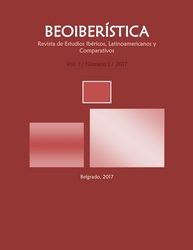ELS REFLEXOS DEL SUFIX LLATÍ -ĬTĬA EN CATALÀ
THE DERIVATIVES OF THE LATIN SUFFIX -ĬTĬA IN CATALAN
Author(s): Joaquim Juan-Mompó RoviraSubject(s): Lexis, Historical Linguistics, Comparative Linguistics
Published by: Филолошки факултет, Универзитет у Београду
Keywords: Catalan suffixes -ea; -esa; literary and dialectal old distribution of Catalan suffixes; modern predominance of Catalan suffixes; unstressed Catalan vowels; -s- eliminating hiatus; Occitan adstratum
Summary/Abstract: The article studies the double evolution, to -ea and -esa, from the Latin suffix -ĭtĭa in Catalan (pauperĭtĭa > pobrea, pobresa), taking into account the state of the medieval language, dialectal distribution of each ending and possible reasons that cause the hegemony of each one. In order to know the actual state of these two morphemes in Old Catalan and its evolution we have analyzed its behavior on a corpus of 23 works, in order to establish the number of occurrences of each suffix, its predominance depending on the dialectal area which houses the titles analyzed and preferences, if any, of certain lexemes for either ending. The results are that both endings were common and ancient in medieval Catalan, that there is not one which takes occurs earlier than the other, and that it is possible to detect territorial preferences (higher frequency of the suffix -esa further north and predominantly -ea of the south of the Catalan linguistic area). In conclusion, we have proposed a phonetic factor (the vowel system, in particular realizations of a and e) as a possible key element in the establishment of one or another suffix, as well as the influence of the Occitan adstratum as an incentive of the -esa suffix.
Journal: BEOIBERÍSTICA - Revista de Estudios Ibéricos, Latinoamericanos y Comparativos
- Issue Year: 1/2017
- Issue No: 1
- Page Range: 27-42
- Page Count: 16
- Language: Spanish

